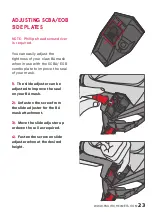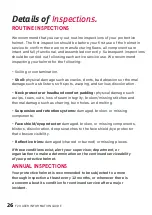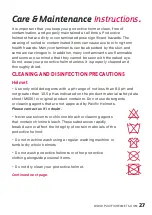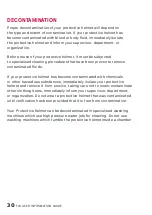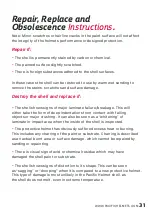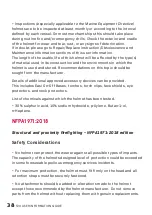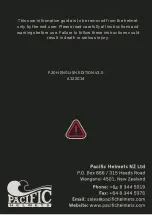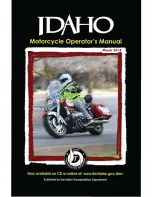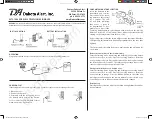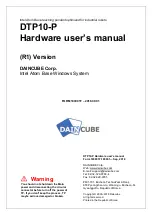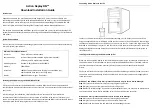
INSTRUCTIONS OR RECOMMENDATIONS
-
Size selection – all helmets are adjustable to sizes between 52-65cm
Hat size 6-1/2” to 8-1/2” (52-65cm)
-
This helmet complies with the retention requirements of EN443 when
the chinstrap supplied by the helmet manufacturer is worn and adjusted
in accordance with these instructions.
-
Mass – firefighting helmets may vary in weight depending on models,
specifications and accessories but will typically be between 1.4-1.6kg.
-
Use – helmets are designed for structural firefighting in both
land
and
marine
environments.
-
Cleaning and disinfection – please see Care and Maintenance
Information section.
-
Maintenance and servicing – please see Care and Maintenance
Information section.
-
Storage and transportation – store helmet in dry ambient conditions
when not in use. For marine use, keep the helmet dry and away from
moisture or liquid like seawater that may deteriorate the components
prematurely. Always keep the helmet in its carry bag.
-
Obsolescence – the helmet can be expected to remain in service for
up to 25 years,
if not damaged
during use.
Continued next page.
WWW.PACIFICHELMETS.COM
37

